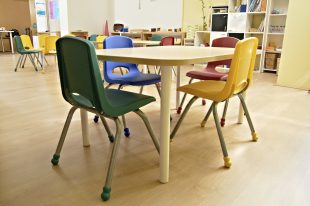
Today’s news review looks at coverage about our Key Stage 2 plans and pupil projection figures.
Key Stage 2 plans
Yesterday (14 July) we emailed all schools reminding them that the planned Key Stage 2 multiplication checks and the roll out of year 7 SAT resits will not be statutory in the next academic year.
The TES have incorrectly reported that the tests were originally planned for the 2016/17 academic year and that they have been delayed. This is wrong. We have never told schools the tests would be rolled out in the coming academic year and the email we issued yesterday was simply a reminder of that.
This is not a change in the Department’s plans and this was clear in the following paragraph of the email:
Multiplication tables check and year 7 resits update
Following previous announcements about the multiplication tables check and year 7 resits we are re-confirming that there will be no statutory requirement on schools to administer these tests in the 2016 to 2017 academic year.
We will engage with the sector as we introduce the tests and will provide further details in due course.
For further clarity, our response is as follows:
As part of our routine communications with schools we reiterated previous communications that the planned multiplication check and Year 7 resits will not be introduced as a statutory requirement in the next academic year. We will continue to engage with the sector regarding the plans and provide more detail in due course.
Pupil projection figures
The BBC has reported on the Department’s pupil projection figures – our predictions of the school population over the coming years.
The figure the BBC has highlighted is that an extra 750,000 places will be needed by 2025. While this figure is correct, the BBC’s copy also says that school leaders have warned that this will make it harder for parents to get their preferred choice of school for their children.
This assertion is not true. The pupil projection figures are published so that we and local authorities can plan school place spending accordingly. As the population rises, so will the number of school places. In recent years, despite a surge in the population, the number of pupils being given their preferred choice of school at both primary and secondary level has remained stable.
95% of parents in England received an offer at one of their top three preferred secondary schools in 2016/17, while 96.3% of parents in England received an offer at one of their top three preferred primary schools.
A Department for Education spokesperson said:
Delivering good quality school places is a top priority for this government and the latest figures show that the system continues to work. We have already committed £7 billion for school places, which, along with our investment in 500 new free schools, we expect to deliver 600,000 new places by 2021.
The latest figures show that the system is responding well to growing numbers of pupils – fewer children are being taught in large infant classes, the average primary school class sizes remain stable at 27.1 pupils and the vast majority of parents get places in their preferred schools.
Our reforms and our academy programme are raising standards for all children with more than 1.4 million more pupils in good or outstanding schools than in 2010. We will continue to invest and work hard to ensure every child has an excellent education that allows them to reach their full potential.
Follow us on Twitter and don't forget to sign up for email alerts.